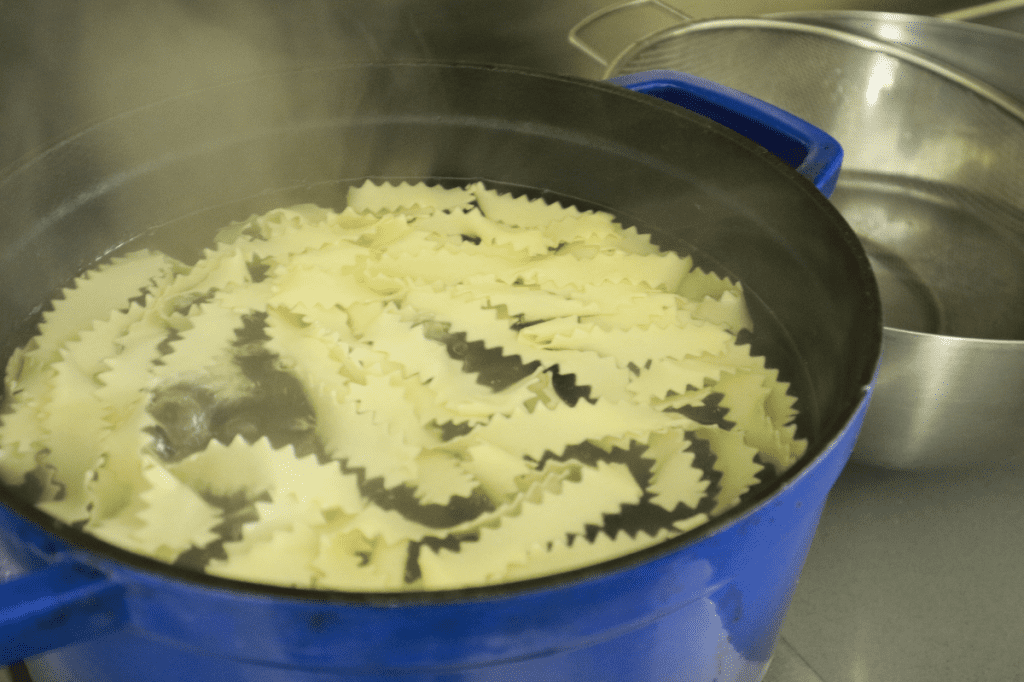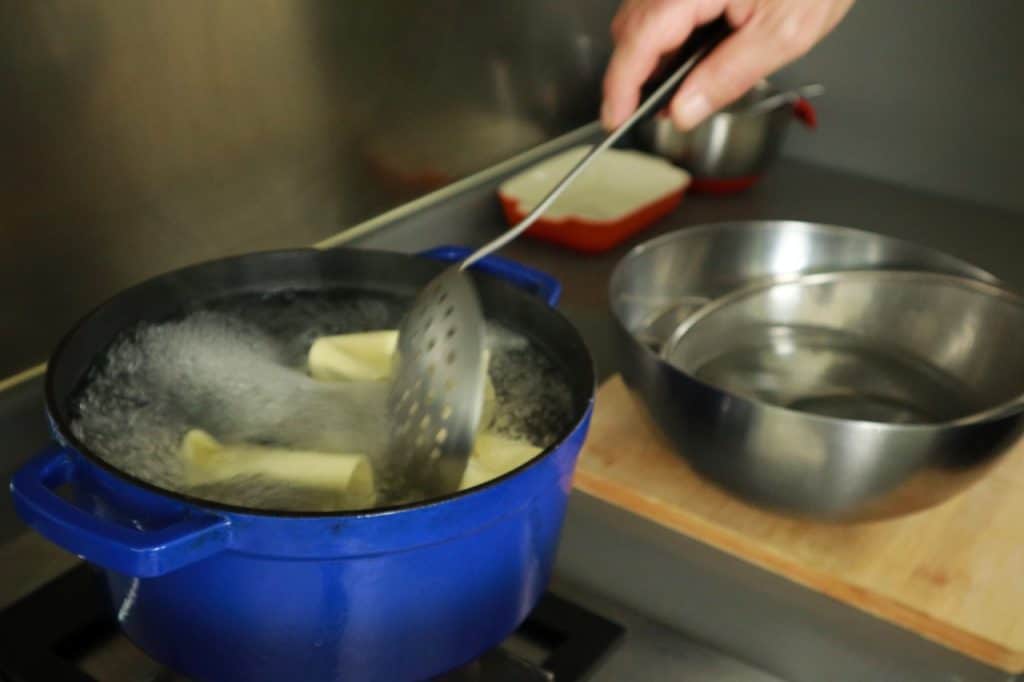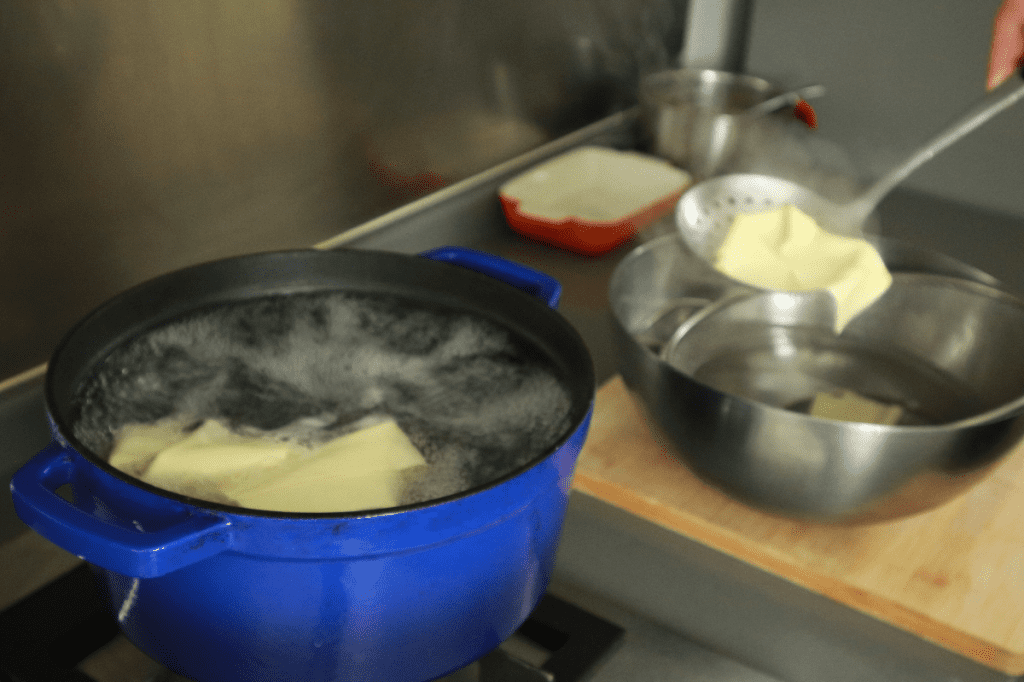How to Effectively Cook Pasta to Prevent Sticking
Making pasta is an enjoyable activity for the whole family. Young and old, everyone likes good pasta, whatever the shape or size. However, there are many people who don’t know how to cook pasta correctly, and how to stop it from sticking together after the cooking process. There are multiple theories available online, but these are not always correct. Worry not, here is our guide outlining all you need to know to cook fresh homemade pasta or storebought pasta!
Use enough water
Using a big pot filled to the top with water is a crucial start when cooking pasta, even if you only plan to cook 1 packet. use 1 L (¼ gallon) of water per 100 gr (¾ cups) of pasta. Starches are released into the water while the pasta cooks, so having a large amount of water allows the pasta to have enough space while ‘swelling’ and prevents it from sticking together.

Let the water boil before adding the pasta
The water in your pot must come to a rolling boil before adding the pasta. Using lukewarm water makes the pasta chewy which is unpleasant. If you don’t have a big enough pot, consider cooking pasta in two batches or stir constantly during the boiling process.
Stir the pasta water
Once the pasta is added to the boiling water, it is necessary to stir frequently. Stirring at the beginning is crucial as this is when the pasta leaches most of its starch. You might consider turning the heat down and keep a good simmer for the rest of the cooking time with a few extra stirs in the middle and at the end of the cooking. There is no need to cover the pot while cooking pasta.

Add salt to the water
Never forget to add salt to pasta water. Salt won’t prevent the pasta from sticking but it will add flavour. Adding salt will not make the water boil more quickly, this is a myth.
Cook the pasta al dente
Al dente means that the pasta has a little bite, but it is not mushy and chewy. Store bought pasta has cooking instructions and timings on the packaging. We recommend cooking it half a minute to one minute less than specified, especially if you will use the cooked pasta in an oven recipe or other warm preparation. Always check the doneness by taking a piece out of the boiling water and tasting it.
Drain and rinse the pasta
Place a colander in the sink to drain, and ‘rinse’ the pasta under cold running water. This will stop the cooking process and remove the remaining starches. There is no need to rinse under cold water if you serve the pasta immediately.

DON’T add oil
Adding oil to boiling water does not prevent the pasta from sticking together, but it will help to stop the water from boiling over. Adding oil after the cooking process is effective, but the oil will coat the pasta and will prevent any sauce from sticking later. Tossing the pasta in a little butter however, will add taste and shouldn’t influence the flavour of the sauce.
Good tip about avoiding oil. I know some people add it but it never made sense to me.
All depends what you like to make with your pasta. Buon appetite!
I love al dente, thanks for the tips
Thanks for the pasta cooking tips, very informative!
With pleasure!